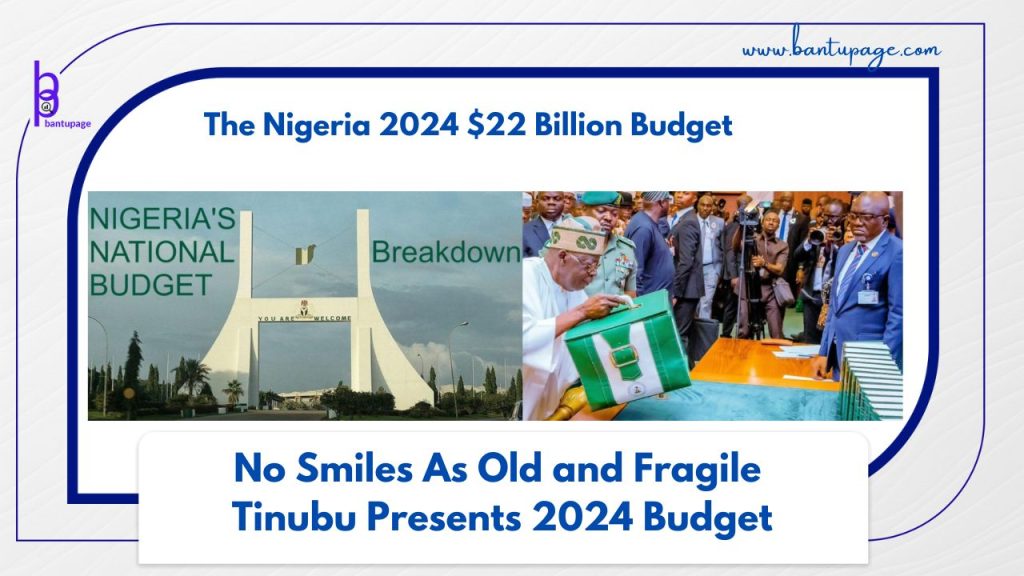
2024 Budget of Ten African Countries
It’s truly remarkable that Tunisia, a country with a modest population of 12 million, has managed to allocate a substantial 2024 budget of $24.5 billion. This surpasses Nigeria’s 2024 budget of $22 billion, despite Nigeria’s significantly larger population of 229 million, which is nineteen times more than Tunisia’s. The significant budget allocations of other African countries further underscore the fact that population does not always translate into a larger economy. This is especially evident in the budget gap between Tunisia and Nigeria. Africa’s top three largest economies, South Africa, Egypt, and Algeria, occupy the top three positions. Even though South Africa is the largest economy, second-place Egypt came first with $132 billion, followed by South Africa with $128 billion, and Algeria a close third with $113 billion.
 Nigeria’s 2024 budget is five or six times lower than Africa’s top three largest economies, South Africa, Egypt, and Algeria
Nigeria’s 2024 budget is five or six times lower than Africa’s top three largest economies, South Africa, Egypt, and Algeria
South Africa and Egypt lead Africa on most metrics. Interestingly, Algeria’s 46 million people have a budget of five times that of Nigeria’s 229 million people. Nigeria is very poor, with one of the world’s lowest average incomes. Similarly, Ivory Coast and Ghana have 2024 budgets of $17 and $14 billion, respectively; their population is seven and six times less than Nigeria’s. A country cannot consider itself the giant of a continent when it falters on most indices that qualify giants. The poorest countries in Europe are more prosperous and developed than the wealthiest countries in sub-Saharan Africa. There is not a single majority-black country that is developed, thriving, or self-sufficient. Is there a correlation-causation effect between race and poverty? Correlation does not necessarily infer causation. Still, further studies are required because this cannot be an accident.
What is a country’s budget?
A government’s budget forecasts expenditures and revenues for a financial or fiscal calendar year. With Nigeria’s $22 billion budget for 229 million people, the outlook is bleak and daunting. If 12 million Tunisians have higher expenditures than 229 million Nigerians, then the poverty level in Nigeria is not fully mirrored. It has to be worse than projected. A civil servant in Nigeria makes three to seven times less than Africa’s top five countries in GDP per capita, and 10 to 25 times less than those in the developed world. We can no longer tolerate the maladministration of the Nigerian economy. However, it is disheartening to think that those responsible for this abysmal failure are either still in power or receiving reverence in retirement.
The average police officer in Nigeria makes ₦75,000 ($48) against the average rent of ₦225,000 ($145). The same is true of almost every other sector, be it private or public. Expecting transparency from people who live under such conditions is unwise. The situation in Kenya is not nearly half that in Nigeria. However, Kenyans have taken to the streets to protest for weeks, and the president has succumbed to many reforms. Nigeria, which is in a three-times worse place than Kenya, sees no protest. Why? Nigeria is not a nation like Kenya. It is ethnocratic. There are many nations within the Nigerian federation whose interest and allegiance rest on their ethnicity over the country. Such alignment prevents the masses from agreeing on what to protest or fight for because their goals and interests differ. The over-centralisation of the Nigerian federal system is a corruption of true federalism.
By Ikechukwu ORJI





